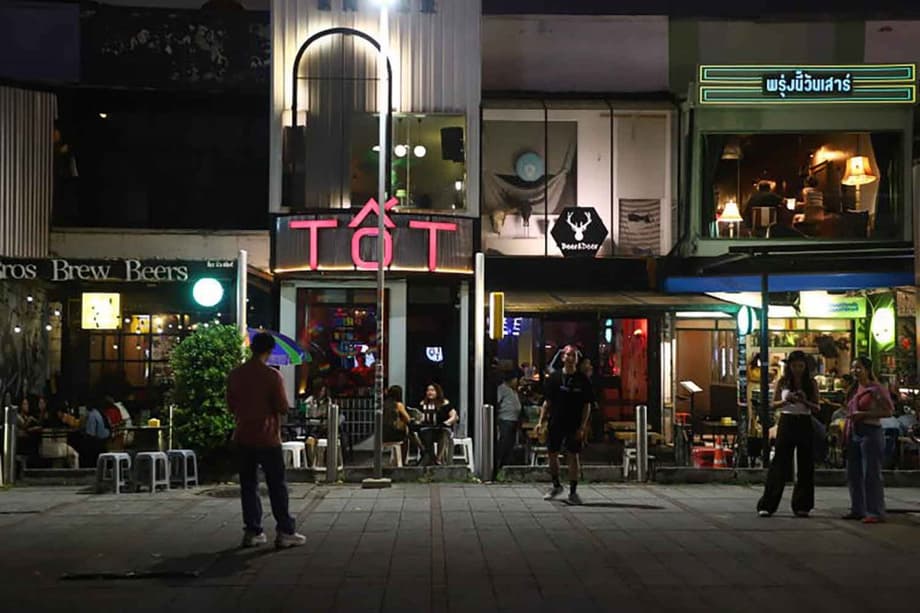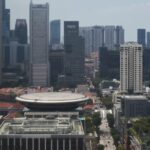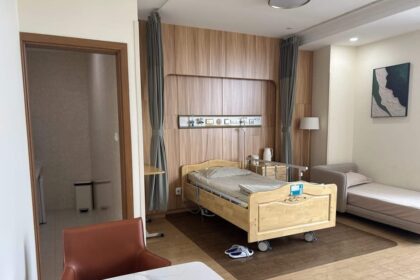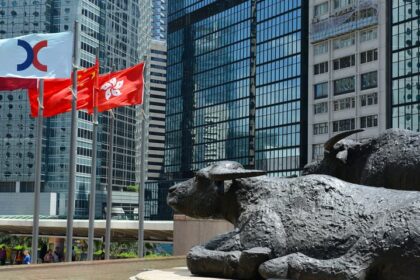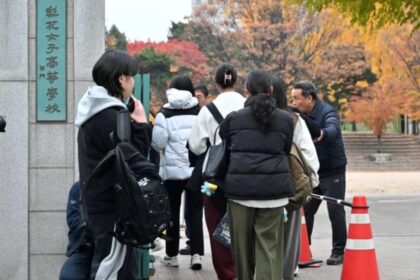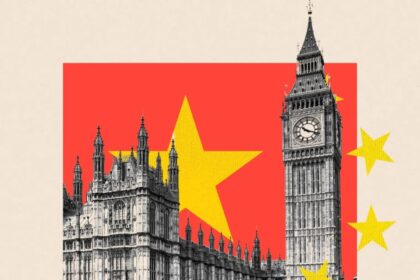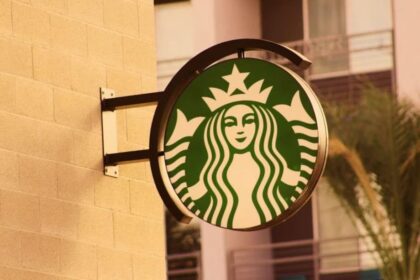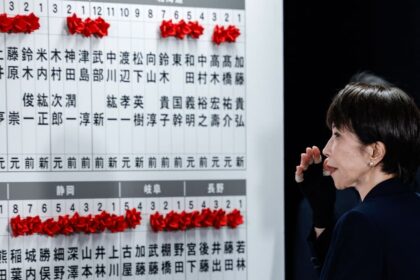New rules redefine drinking hours and venue obligations
Thailand will implement an amended Alcoholic Beverage Control Act (No. 2) B.E. 2568 (2025) on November 8, changing what happens inside bars, restaurants, and clubs when the clock hits the restricted hours. For years, the law limited when alcohol could be sold, generally from 11:00 to 14:00 and 17:00 to 24:00, with carve outs for airport terminals and certain nightlife venues. The new act keeps those sales hours but goes further by restricting consumption inside licensed premises during the banned periods.
- New rules redefine drinking hours and venue obligations
- What changes for customers inside bars and restaurants
- The hospitality sector warns of confusion and lost spending
- Official guidance for tourists and where you can drink
- Nightlife hotspots adjust to new enforcement
- Will the afternoon ban and zoning rules be relaxed in 2026
- Why Thailand keeps time limits on alcohol
- How Thailand compares with regional rivals
- Practical tips to stay within the law
- Key Points
The central shift is simple to understand in daily life. Ordering drinks before the cutoff will no longer allow customers to keep drinking them during the time ban. If the prohibited hours begin, glasses on tables must be set aside inside the venue until legal hours return. Thai authorities have also introduced a consumer penalty for breaking these time rules. Drinkers who consume alcohol in licensed venues during restricted hours can face fines, with the top penalty set at 10,000 baht according to official notices tied to the new act.
Policymakers say the goal is to strengthen public health and safety without abandoning tourism. The statute also broadens how alcohol marketing is regulated, expands enforcement tools, and clarifies what sellers can do to check identification and assess intoxication. It opens the door for tightly controlled alcohol vending machines that can verify buyer age and comply with rules that will be issued by the Alcoholic Beverage Control Committee.
What changes for customers inside bars and restaurants
The biggest change affects what happens after last call during the afternoon pause or after midnight. For many years, venues respected the ban on selling alcohol during restricted hours, yet customers sometimes preordered drinks or held on to open bottles and continued drinking at their tables. The revised law now makes that practice illegal inside any place that is licensed to sell alcohol or allows alcohol service, even if the drink was purchased before the cutoff.
Buying before the cutoff no longer protects you
Under Section 32 of the new act, consumption is prohibited during the banned period in any venue where alcohol is sold or in any area authorized for alcohol service. The wording covers drinks already purchased. Venue staff will be required to stop service, remove glasses from tables if needed, and advise customers to wait until legal hours resume. That is a shift for local patrons and for visitors who may be used to more flexible rules in other countries.
Where the time limits still apply
National sales hours remain 11:00 to 14:00 and 17:00 to 24:00. Exemptions apply for registered hotels, airport terminals, and entertainment places under Thai law. The Alcoholic Beverage Control Committee can issue notifications that add conditions or exemptions. Venues should monitor official notices, since implementing regulations will determine how identity checks, intoxication assessments, and new technology such as vending machines work in practice.
The hospitality sector warns of confusion and lost spending
Restaurant and bar owners say the consumption ban during restricted hours will ripple through a busy travel season. They also worry about confusion for tourists who are already surprised by Thailand’s afternoon pause and midnight cutoff. Industry leaders argue that businesses inside tourist districts rely on predictable rules that can be explained at the door, especially during peak holidays.
Chanon Koetcharoen, president of the Restaurant Association, said some customers already struggle to understand why service stops in the middle of the day and at midnight. He expects the new consumption rule to make that experience tougher for visitors and staff. Before the enforcement date, his message has been to prepare teams to handle questions and to post clear notices in multiple languages.
Introducing his concerns, Mr Chanon said many visitors do not grasp why they are suddenly asked to stop drinking when the clock changes, even if they ordered earlier. He warned that this could frustrate travelers who planned meals and celebrations around a flexible last round.
"When the prohibited hours begin, foreign customers and even some Thai customers do not understand why they are being asked to finish their drinks outside," he said.
He added that no implementing rule has been proposed to carve out exemptions for restaurants. That absence leaves managers waiting on the Alcohol Control Committee for any clarifications or allowances.
Official guidance for tourists and where you can drink
The Tourism Authority of Thailand has updated its public guidance to help travelers navigate the rules. The national sales windows stay in place, but hotels, airport terminals that serve international flights, and licensed entertainment venues are exempt from the time limits. Visitors can order drinks at those venues outside the 11:00 to 14:00 and 17:00 to 24:00 windows. Businesses still must check age and follow responsible service rules.
Alcohol remains banned on trains and inside railway stations. A narrow exception applies to Bangkok Railway Station (Hua Lamphong) inside a designated event area during government approved events. Travelers should assume that alcohol is not permitted anywhere on railway property unless signage and staff indicate an approved event area.
Outside of licensed venues, Thailand restricts alcohol in many public areas. Drinking is not allowed in national parks, near temples and many religious sites, and in other protected zones where local rules apply. The legal age for buying and drinking is 20. Driving under the influence carries serious penalties that can include arrest and fines. Taxis, rideshare services, and public transport are widely available in cities and resort areas.
For official visitor guidance, check the Tourism Authority of Thailand advisory on alcohol rules for travelers. The agency provides practical examples and updates on exemptions for hotels and airports. You can review the latest advice on its website at TAT News.
Nightlife hotspots adjust to new enforcement
Bangkok, Pattaya, and Phuket draw visitors for beach clubs, rooftop bars, and live music. Venue owners in these districts say the fine for consumers who drink during restricted hours will change how they manage closing time. Staff will need to clear drinks promptly when the cutoff starts, post clear signals on last orders, and steer customers toward legal options such as hotel lounges that operate without the time limits.
Concerns about overreach have already reached parliament. The Pattaya Night Business Entrepreneurs Association petitioned the Senate to review parts of the new act, warning that tighter rules on where people can drink could hurt the local economy in peak months. The chairwoman, Lisa Hamilton, said the rules risk unintended consequences if enforcement is inconsistent on beaches and in open areas frequented by tourists.
Introducing her appeal to policymakers, Ms Hamilton said the timing could harm the country’s image if visitors face fines for behavior they do not realize is illegal. She urged lawmakers to keep tourism realities in mind during enforcement and to focus on clear guidance for visitors and businesses.
"The rule risks damaging Thailand’s image as a tourist destination ahead of the high season," she said in an appeal to the Senate.
Will the afternoon ban and zoning rules be relaxed in 2026
Ministers have revived discussions on easing parts of the alcohol rulebook. Proposals on the table include scrapping the 14:00 to 17:00 sales pause in some areas and eliminating complex zoning rules that define where nightlife can operate. If approved, the government has signaled that changes could take effect in January 2026, after the peak year end holidays.
Business groups say reform would help hotels, restaurants, and entertainment districts capture more visitor spending. A study by Oxford Economics for the Asia Pacific International Spirits and Wines Alliance estimates Thailand could add as much as 100 billion baht in tourism revenue by lifting the afternoon sales pause, updating zoning, and permitting regulated e commerce sales. The report argues that high spending travelers choose destinations with premium food and beverage experiences that are easy to access throughout the day.
Rawat Khongchat, a member of the Night Restaurant Business Trade Association, supports simplifying the map of nightlife areas, saying that broader trading zones would spread revenue to major and secondary cities. He also called for tighter road safety enforcement alongside any relaxation of sales rules, with tax receipts channeled to programs that prevent drunk driving.
"The government should scrap complicated zoning, enforce traffic laws strictly, and use new tax revenue to promote road safety," Mr Rawat said.
Any formal change to sales hours or zoning will require new regulations and will not arrive before the year end travel period.
Why Thailand keeps time limits on alcohol
Thai officials frame the time bands and consumption rules as a public health choice that also aims to reduce drunk driving and late night disturbances. The amended act increases penalties for unlawful promotion and sets a broader definition of marketing communication, covering sponsorships, brand tie ins, and indirect campaigns that encourage drinking. Producers, importers, and sellers who break these rules face larger fines, and authorities can refer cases to licensing agencies that issue excise permits.
Sellers have clearer legal cover to verify age and to assess the condition of intoxicated patrons. The Department of Disease Control plans to issue instructions that define how staff can evaluate intoxication and refuse service. The law also allows controlled use of alcohol vending machines that can confirm buyer details, but the Alcoholic Beverage Control Committee will first publish strict rules before any deployment.
How Thailand compares with regional rivals
Thailand is competing for long haul visitors who weigh nightlife and dining as part of their itineraries. Vietnam does not set national time blocks in most tourist zones. Japan allows round the clock sales in many settings but pairs that with strong responsible service training and a culture of orderly public drinking. Australia keeps alcohol widely available, yet requires staff to complete Responsible Service of Alcohol training and uses city level licensing to manage hot spots.
Thai business groups say the current afternoon sales ban is out of step with these markets. They point to premium beach clubs and destination restaurants that lose lunch and early evening revenue when service must pause. Advocates of reform argue that clear zoning, strict identity checks, and tougher road safety enforcement can deliver a safer model without curbing visitor choice.
Practical tips to stay within the law
Visitors can still enjoy a drink with a view in Thailand by planning around venue type and local rules. These tips will help keep a night out both legal and stress free.
- Remember national sales hours of 11:00 to 14:00 and 17:00 to 24:00, unless you are in a registered hotel, an airport terminal, or a licensed entertainment venue.
- Inside restaurants and bars that are not exempt, stop drinking during the restricted hours, even if you purchased the drink earlier.
- Follow staff instructions on last orders and drink clearance when the cutoff begins.
- Ask your hotel concierge or venue manager about local rules in your area, since municipalities sometimes set tighter limits for events or festivals.
- Do not drink on trains or in railway stations. The only narrow exception is a designated event area inside Bangkok Railway Station during approved events.
- Avoid alcohol in national parks, near temples, and in other protected public places.
- Carry identification. The legal age is 20, and businesses may ask to verify age.
- Arrange safe transport if you plan to drink. Thailand enforces drunk driving laws.
- If in doubt, choose to drink in a hotel bar or lounge where exemptions to time limits apply.
- Check the Tourism Authority of Thailand website for any event specific notices that affect alcohol service.
Key Points
- New Alcoholic Beverage Control Act takes effect on November 8, 2025, and prohibits consumption in licensed venues during restricted hours.
- National sales windows stay at 11:00 to 14:00 and 17:00 to 24:00, with exemptions for hotels, airport terminals, and licensed entertainment venues.
- Drinkers who consume alcohol during the ban inside licensed premises can face fines up to 10,000 baht.
- Tourism groups warn of confusion for visitors and potential revenue loss during peak season.
- TAT guidance urges travelers to follow venue rules, avoid alcohol on trains and in stations, and respect bans in parks and near temples.
- The amended law tightens advertising controls, expands seller ID checks, and allows regulated vending machines subject to future rules.
- Business groups are pushing to lift the 14:00 to 17:00 pause and simplify zoning, with possible changes considered for January 2026.
- Officials cite public health and road safety goals as reasons to keep time limits and stronger enforcement.


